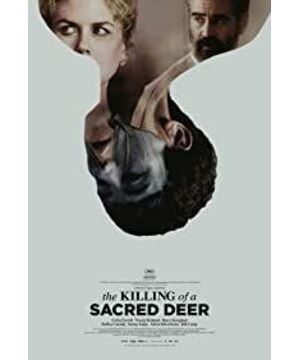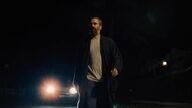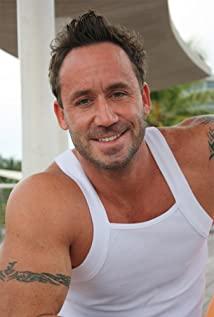"Lady of Our Lady" and "Death of the Sacred Deer"
The Killing of a Sacred Deer opens with a heart undergoing surgery, beating vigorously. At the same time, the loud and abrupt background music: Franz Schubert (1797-1828)'s "Stabat Mater", is singing the grief of the Virgin, mourning her heartache. In this scene, the protagonist, theme, and secret of the story are clear at a glance. The protagonist is a cardiologist, Steve. Murphy (Steven Murphy, played by Colin Farrell), the theme is about conscience, and the Virgin of Lamentations in the symphony alludes to wrongful death and atonement. "Death of the Sacred Deer" is directed by Greek director Yog. Yorgos Lanthimos's new work in 2017, inheriting the weird style of the past, "Sacred Deer" is a kind of contradictory horror that is so fresh that it is creepy, and so calm that it makes people chill. The story takes place in a perfect family of high-level intellectuals. The male owner is Steve, a cardiologist, and his wife, Anna (Anna Murphy, played by Nicole Kidman), an ophthalmologist, is currently a suspended stay-at-home mother. The two doctors have a daughter and a son. The daughter, Kim, is in puberty, and her first period has just arrived, and the son, Bob, is about ten years old. The family lived a happy and prosperous life, with loving parents and well-behaved children. They were a typical perfect middle class—a nuclear family created by wealthy intellectuals. However, in this beautiful family, there is actually a shadow that is about to fester from it. As the movie's story progresses, we'll see this shadow expand bit by bit, eroding its surroundings bit by bit, and eventually, it will completely devour Steve and the Murphys. Just, what is that shadow?
Murphy's Law and The Death of the Sacred Deer
"Sacred Deer" is a terrifying suspense story, and "shadow" is at the core of the story. This shadow is Steve's hidden secret, not only the audience is puzzled, but even the characters in the play are also kept in the dark, especially Steve's wife Anna, who is even more puzzled. This doubt must be understood by the weird boy Martin (Martin, Barry Keoghan ). The director did not give him a surname at first, only a given name. The absence of a surname implies that he has no father, because his father has passed away and he lives with his mother. He is the mother's child (this sentence will be fully understood by the end of the article). According to Steve, his father was Steve's patient and died in a car accident. At the beginning of the film, we will see the interaction between cardiologist Steve and Martin, like father and son, and like teacher. Steve seems to love Martin very much, because he doesn't care whether it is expensive or not, he only asks a few basic conditions, and immediately decides to buy a high-end watch that can dive 100 meters. Affordable watches and, moreover, buy more expensive metal straps. Steve then gave the watch to the polite little boy during a brief dinner with Martin. By the next meeting, though, Martin told Steve that he had replaced the strap with a leather strap of his liking. This has two meanings: (1) Martin's and Steve's preferences are obviously different; (2) Martin is very assertive and firm in his will. The rich and the rich cannot be promiscuous, the poor cannot be moved, and he will not be bought because of the high price. When the story continues, we will find that the relationship between Martin and Steve is surprisingly cold, and Steve's kindness actually has some kind of reluctance, not like enthusiasm and appreciation from the heart at all, and even constantly Escape Martin's pressing man-marking and dating.
However, even if he didn't appreciate it and didn't like it, after getting to know him well, Steve decided to invite Martin to dinner at home, get to know the two children at home, and introduce the young man to his beautiful wife. Tragedy begins here. About this beautiful wife Anna, we can understand each other's relationship from the three interactions of the couple: (1) When they were in bed, Anna asked Steve, what kind of anesthesia do you want today? General anesthesia, Steve said. Because Steve likes to be in control, their sexuality suggests his desire for control; then, (2) Anna will deliberately curry favor with him, such as making lemon cakes that don't even have children (Steve loves lemon cakes) , not the lemonade that Martin's mother is good at); in addition, (3) Anna's special dress on the special day must match Steve's favorite black lace dress. Anna responds to Steve's requests, and puts Steve's opinions before herself and her children. Steve is not only the head of the family, but also like a king. As the story progresses, the more we realize that Steve is not just a father, a teacher, and a heart surgeon, but also "the king of the family." Also, if you've seen Doctor Strange (Doctor Strange, 2016), I will still remember that the surgical operations of the brain and the heart are the most difficult and delicate operations. Of course, doctors who can perform delicate surgery are not only sharp and smart (Dr. Strange's exceptional memory), skilled, and respected. That's why Martin's mother and father directly praised Steve's hands as "so soft, so white, so clean, so beautiful". The cardiologist's patients greatly admire the doctor's hands, which are sacred hands that can determine "life and death", like god-like hands. Steve's speech at the medical seminar clearly demonstrated the assumption that "cardiologists are as great as gods". Steve said that in September 1977, the first patient whose heart was successfully replaced is still alive today, but the irony is that the doctor who changed the patient's heart is no longer alive. In this speech, the comparison between patients and doctors was originally intended to emphasize that cardiac medicine is already a mature and confident science, and patients need not be too worried, because not only the success rate is high, but also the survival rate. Therefore, assuming that God originally intended the patient to die of a heart attack at this moment, the cardiologist was able to bring the dead back to life and intervene in the divine order of death. But the good thing is that the second half of this little story is an irony at all. If doctors can be like gods and bring heart patients back from the hands of death, why can't they stop their own death knell? This is the foreshadowing of this story: even if he once saved a life, the doctor is not a god after all, but a human being, a common man who cannot even control his own destiny.
Even if you restore Steve's surname Murphy to English, Murphy, you will find that Murphy is the same word as Murphy in Murphy's Law, which means "everything will go wrong, everything will go wrong; everything has flaws. , especially at critical moments, it will go wrong.” The normal state described by the theorem is the helplessness and embarrassment of the mortal world. The hint that "man is not god" and "man will make mistakes" is hidden in Steve's surname. However, already immersed in the great scientific achievements and the worship and dependence of the people, the cardiologist Steve has long forgotten that he is only a mortal, and is still accustomed to orders, demands and dominant situations. One of the ways this habit of mastery manifests itself is (1) revelling in Anna's full numbness in bed, and (2) or asking Martin to make an appointment before he comes. Steve hates playing cards out of line and uncontrollable abruptness, but Martin is constantly challenging Steve's power boundaries, deliberately violating his sense of superiority, especially Steve's self-righteous sacred status.
The Greek Moon God, The Sin of Madness, and The Death of the Sacred Deer
In classical Greek tragedy, the fate of the hero will eventually lead to the dark abyss and self-destruction, nothing more than committing one of the greatest errors in the world: hubris. The so-called arrogance in the Greek era refers to not knowing the limits of man, delusional thinking that man is as great as God, self-righteous crossing the boundaries of man, and greedily trying to reach the realm of God. In Lansimo's film, the so-called "Death of the Sacred Deer" alludes to the arrogant king Agamemnon in Greek tragedy, who offended God for being too self-righteous, and Agamemnon was condemned by God . The story goes like this: One day Agamemnon went hunting in the forest, chased down a fawn, chased it to a cave, and then shot the fawn easily in the cave. After killing the deer, Agamemnon was very proud and called himself a sharpshooter, almost more than the goddess of the moon, Artemis , who protected the deer herd .
Knowing this, Artemis was extremely displeased: Agamemnon, you king of men, stepped on my territory, hunted in my forest, entered my crypt, and killed my deer, and yet you still think you are right. The land directly said: I am God, I am a good God! Dare to say that your hunting skills are far better than mine, you really don't want to die! Unfortunately, Agamemnon was arrogant in Artemis's turf, annoyed the goddess of the moon, forest, wild deer, hunting, bow and arrow, and women. In confrontation with God, you will usually lose, and you must make compensation and sacrifice in order to appease God’s anger. But the arrogant and ignorant Agamemnon, unaware and unaware that Luna had turned into a wrathful god, held him to a gust of east wind that was about to set sail for the Trojan War , and made hundreds of large ships moored on the shore. , do not move at all. As a result, all the bloodthirsty men who were already waiting on the ship, eager to fight the enemy on the battlefield, became extremely impatient and demanded a thorough investigation into why the big ship did not sail. The Prophet told Agamemnon: His unreasonable arrogance has already angered the moon god Artemis, and now he can only rely on the blood debt of one life for one life to quell the wrath of the moon god and have the opportunity to liberate Dongfeng. Let the big ship go out of port. The so-called repayment of blood for blood is a human sacrifice. Agamemnon had to sacrifice his eldest daughter , Iphigenia , to the god of the moon, so that the stationary ships could set sail. Only by going to the battlefield will the bloodthirsty crew members who are full of blood will not kill the Agamemnon family because of their anger. In other words, this sacrifice is not only a blood sacrifice of "beauty for wild deer", but also a life-to-life exchange of "eldest daughter for the life of a family".
The reason why Agamemnon ended up as a female sacrifice was because of his unrestrained arrogance and conceit that he thought he was as great as God. In "The Death of the Sacred Deer", Lansimo is based on the story structure of Agamemnon's deer hunting, mocking the arrogance and conceit of cardiologist Steve, and using Martin as the agent of God in the world to execute blood debts. Steve is required to accept the punishment of justice and justice in the cruel way of "skilling one person in exchange for the life of the whole family". Let's first see how the director Lansimo arranged the details to transform the blood sacrifice of the people in the Greek tragedy into a contemporary story scene: (1) First, Steve's stubbornness and conceit are now manifested in his Speech, sex, control, and narcosis. Steve is the "king" of the family and the "god" in the eyes of the patient. He was admired and admired because he had clean, beautiful, holy, and white hands. The following photo from an elevation angle is the symbol of "king like a god".
(2) Furthermore, from the image of the "king like a god" from the elevation angle, it is also understandable why Steve needs to have a big beard. Beard (hair) has been a symbol of masculinity, power, and sex since ancient times. A thick beard means power and desire. Although Steve looks gentle and polite, his beard betrays his arrogance and arrogance. (3) Because he was too self-confident and conceited, he drank a few glasses of wine recklessly before a heart operation. As a result, it was not because of anesthesia error, but because he anesthetized his honesty and rationality, which made Martin on the operating table. Father, died on the spot. Steve accidentally kills a man who should never die. It was the dark spot in his life that would gradually turn into a shadow that would devour his family. His sin of arrogance will be borne by the sacrifice of his children; like Agamemnon, he will face a life-for-life mental torture. (4) Here, I recall the first scene of the movie, the heartbeat during the operation and the "Morning Song". This hymn describes the unjust death of Jesus. The Virgin Mary sadly looked at the physical pain of her son, silently Tears swallowed the pain inside. "Sacred Deer" puts this hymn in the background to correspond to the heartbeat, which already implies that this is an operation of unjust death, and also indicates that there is a scene of "redemption". In Lamentations of the Virgin, the blood of the Son washes away the sins of mankind; in The Deer, the blood of the children washes away the sins of the father. (5) However, Steve, the protagonist of "Sacred Deer", has both a son and a daughter. Will the story lead to the "substitution of the daughter" in Greek mythology, or the "substitution of the son" in the Bible? The story structure of "Children's Substitution" is vaguely intertwined and integrated here, making it difficult for some viewers to judge the final outcome even though some viewers have already observed the insinuation of the story, and they cannot figure out which child Steve will take as a sacrifice , which child to point the shotgun at. (6) Because this is a story about arrogant murder, it naturally implies the punishment of the moon god (the moon god is also the hunting god of the forest). So, when Martin decided to have a showdown with Steve and proposed his four-stage death path, Martin also gave Steve a Swiss knife, a universal knife used by modern people in the forest, symbolizing the origin of The gift of the wrath of the Moon God. Similarly, at the end of the play, when Steve had to kill with a gun, the tool he used was a shotgun, a symbol of hunting wild deer. Not only does it insinuate that this is a punishment from the goddess of hunting, but it also echoes the "Holy Deer" of the movie's title. (7), because this is a story about "blood debt as a substitute", when Martin was locked in the basement by an angry Steve and threatened, he was still lifeless and unmoved (as mentioned earlier, Martin He's a tough boy who can't move the rich and the poor), and even bit his hand. A piece of meat on his arm told Steve with a mouth full of blood: This is a symbol, what you have to do is to bite off a piece of meat in your heart to save the lives of the whole family. Blood debt is paid in blood. One bite, save the whole body; kill one person, save the whole family. A life for a life is justice in his mouth. Martin is just doing justice for the heavens, instead of the righteous hand of the moon god to punish the world. (8) In addition to hunting guns, hunting knives, and hints of scapegoating, Lansimo also put the name of Agamemnon's daughter Iphigenia into the dialogue of the film. When Steve was determined to kill one of his children, but he didn't know who to kill, he once came to the child's school and asked the teacher which child was better, thinking that he would keep a more worthy child. When he talked to the teacher about his daughter Jin, the teacher said: Jin's literature class is doing very well, especially a recent report on a Greek tragedy, the content is about Iphigenia, this work is wonderful. At this moment, I doubted for a while whether Steve would consider killing his daughter, because Iphigenia was the victim that Agamemnon sacrificed to the moon god.
(9) In addition, in order to emphasize the punishment from God and the insignificance of human beings, there are several high-view camera angles in the play. For example, Bob, who finally seemed to recover, took the elevator with Anna to go home, but when the elevator slid to the bottom of the first floor, he fell to the ground instantly paralyzed. The perspective at this time is to look down vertically from a high place, which means looking from the sky to the human world, that is the perspective of God, and it is also divine punishment. In addition, there is a still photo of Steve standing in front of the white hospital beds of the two children, staring at the two beds in contemplation. At this time, the black and white curtains in the background are drawn extremely long and tall, about six times his height. Too many, making Steve look extremely insignificant, like an ant standing in the world, vulnerable to a single blow. This overlooked perspective is mocking the insignificance and self-importance of human beings, as well as punishing human beings for their pretentiousness and arrogance. In other words, human beings are not qualified to stand in the position of God and play the role of God.
(10) Finally, the passage about the daughter's sudden paralysis and fall while practicing singing in the choir also echoes and links with the Greek tragedy. In the traditional Greek tragedy, in addition to the actors and main characters, there is also a chorus, which has the functions of laying out, summarizing, and foreshadowing. In "The Sacred Deer," for example, Steve's daughter Kim, while the choir practiced, was singing "Carol of the Bells," a song about the joy of Jesus' birthday approaching. Originally, this song was filled with joy, anticipation, and sacred feelings, especially the joy of life brought by many children singing together. However, in "Sacred Deer", the version sung by Lachey Arts Choir, there is no joy, but only indifference, urgency, heaviness, and anxiety. Especially when "something is coming" is emphasized through the overlapping "Merry Merry Merry Merry Christmas", it feels particularly looming. Sure enough, at the climax of the song, Jin thumped, his legs were paralyzed, and he fell down in public. It turned out that the "coming soon" that was constantly being called was not "Merry Christmas", but "Vengeance towards death". The choir here, in a mocking way, foreshadows what is to come: paralysis and death. Summarizing the above ten points, we can sort out the core of the story of "Sacred Deer": Steve, a cardiac surgeon, is too arrogant and arrogant. Even after killing a patient by mistake, he is still reluctant to admit his mistake, and continues to indulge in doctors like gods and parents like Wang's self-illusion, and, habitually, imposes this image on all the people and things he knows, including the little boy Martin. It's just that Martin knew the cause of his father's death, and he didn't want to be simply bought by Steve. With a few meals and a watch, he could forgive Steve for killing his father. He was determined to take revenge.
"Stop Today" and "The Death of the Sacred Deer"
However, before Martin's revenge for human sacrifice, he actually gave Steve a chance. That is, the day after Steve invited him to dinner at the Murphy family, Martin politely invited Steve back and invited him to participate in Martin's dinner. Mother's kindly prepared dinner. At this dinner, Martin had expectations. He hoped that the doctor could be with his mother, take the doctor as a hostage, and exchange the dead father, so that the mother could have a husband and a father. Martin kept telling Steve that his mother was very kind and beautiful, she kept her figure in great shape, and her cooking skills were quite good. He longed for Steve to fall in love with his mother, so that he could make up for his father's wrongful death. After their dinner, they watched a movie together—1993's Groundhog Day . Bill. Bill Murray stars as a weather announcer who gets stuck in a time corridor because of his conceit, stuck on the same Groundhog Day (February 2). It was the coldest in North America, with spring at least six weeks away. Groundhog Day is akin to Christian Christmas (echoing Kim's Christmas chorus), a holiday in anticipation of spring — a feast in the harshest of winters, a night filled with hope for spring. However, in "Stop Today," weatherman Phil (Phil, Murray) is trapped in a dark day of the year, with no hope of moving forward because of his sin of hubris. He scorned Groundhog Day, hated the townspeople, complained about the ridiculous live coverage, and mocked everything around him. In the end, in many repeated reincarnations, he slowly awakened and finally realized that "arrogance" is a kind of evil, and he is willing to correct himself, and gradually become a humble and kind person. To get back to the right track of time from the nightmare of Groundhog Day. When Martin played the movie "Stop Today", it was a hint and a reminder to warn Steve: You have the sin of arrogance, you should wake up and correct it, I will give you a chance, it is better to stay with my mother and become Her companion, give her the happiness she lost because of you, and give me a father. I hope "you exchange 'yourself' for my father who you killed with your own hands". Martin didn't say it, of course, but he left on his own, leaving behind a mother who admired Steve very much. However, Steve refused. The tragedy then goes a step further: since Steve is unwilling to sacrifice himself in exchange for his father's life, then your children will take the blame for you. Steve was reluctant to sacrifice, because it was not only a superficial relationship with Martin's mother, but also his reputation and career had to be ruined because of this relationship. Obviously, such a sacrifice is too costly, and Steve categorically refuses. Since then, Martin has begun to intervene in his life, gradually disintegrating Steve's perfect world.
Oedipus and The Death of the Sacred Deer
The family formed by Steve and Anna is a typical contemporary perfect middle class. Two doctors, a pair of children, a wealthy family, living in a luxury residential area, driving a luxury car, being loved and respected, and having talented and well-behaved children. A beautiful and obedient wife with a high degree of education, Steve's life is almost the culmination of the American dream for all men. With such a beautiful life, Steve must be proud, and of course he is not willing to give up. Who is willing to hand over dignity and wealth to others? Martin understood that Steve would not sacrifice all of this and had to take it himself. Interestingly, in this typical perfect family, a metaphor is hidden: a cardiologist and an ophthalmologist, one in charge of the heart and the other in charge of the eyes. However, it is very ironic that the heart of a cardiologist is ruthless, while the eyes of an ophthalmologist are blinded. Cardiologists are arrogant and unwilling to take responsibility or sacrifice; ophthalmologists are deceived by the fact that they have a husband as king and trust him extremely. Like a "blind man" who has eyes but no pearls, can't see the truth, can't see the reality, this is Anna's blind spot. However, all these sufferings must be borne by the children. In this way, we can also understand why Martin gave four stages of physical torture, and the third stage would be bleeding from the eyes. Among the Greek tragedies, there is another world-famous tragedy, that is , the drama of Oedipus' murder of his father and marriage of his mother . One of the crimes that Oedipus committed at the beginning was that he had no eyes, could not see the facts, and did not know his parents, so he planted the curse of Oedipus and murdering his father. So, when he knew all his crimes, he was extremely remorseful, gouged out his own eyeballs with his own hands, shed blood from his eyes, and then exiled himself to atone for his sins.
In the same way, because you can't see the facts clearly, it's like opening your eyes and being blind, just like Oedipus' lack of consciousness. Therefore, Martin's third-stage revenge warning is bleeding from the eyes, which reminds the Murphy family that it is best to stop Indifferent, unable to see reality, unable to see guilt, and silent, if you want to be so ruthlessly paralyzed, there is only one way to go. Finally, the Murphy family had to face the reality when their youngest son Bob's eyes began to bleed, and they had to reduce their sacrifices and perform human sacrifices. In this way, he finally calmed down the wrath of the gods, castrated his ego, and made up for the mistake of drunkenness and manslaughter.
A mockery of science, reason, and the perfect middle class
The Murphy family, a perfect middle-class family with doctors as the backbone, is a representative of contemporary mainstream values, as well as a symbol of patriarchy, science, and rationality. However, with the dark and eerie character of Martin, Lansimo not only disintegrated the harmonious relationship of the family, but also scorned the patriarchal power by constantly excavating the insider shadow of the Murphy family and bringing in the supernatural power of WuPeng. , science, and rationality, mocking the absurdity of these contemporary mainstreams. Since the Age of Enlightenment, science and medicine (seemingly) have explained and solved most of the things around human life. Reason-based science and medicine are almost as great as the Bible today, and are worshipped and relied on by many human beings. . From the bottom of my heart, I believe that all things that cannot be understood or explained by reason and science do not exist and are completely disdainful. But is reason the only way to explain the human world? Is the most recognized avant-garde knowledge in the hands of human beings really the best and only tool for detecting the universe and life? Lansimo doesn't seem to think so, because the irrational, female gloomy (moon goddess), and supernatural power represented by Martin is slowly penetrating through an invisible gap and silently intervening in this film. The human world and the human world, in the form of wildfires, devour the values that human beings have long relied on: fathers, men, reason, science, and medicine. Steve: Father, Male, Reason, Science, Medicine Martin: Mother, Female, Irrational, Superstition, Mystery
The goddess of the moon from classical mythology, through Martin, allows us to see the imperfection and instability within mainstream values, so: (1) the perfect middle class is just an illusion, (2) medicine and science are indeed smart, but unintentional They also have no eyes. (3) Human beings who rely too much on rationality are too arrogant and conceited, which leads to blindness. (4) In fact, the beliefs of modern civilization are very fragile and even vulnerable. (5) If you do not want to Compromise with motherhood, irrationality, or mystery, and in the end there may be only the cannibalism within the patriarchy and rationality. (6) Justice cannot be covered up with lies, and God will act at the right time, allowing the stubborn and conceited to witness in the pain his presence. "The Death of the Sacred Deer" is a terrifying and terrifying movie, very alert, and it is frightening to watch, but it is a bizarre fear that can't be described for a while, it seems to be stuck in the depths of my heart, I want to vomit but I can't vomit. I think that's because the plot of this movie seems to be calling for some kind of mysterious primordial power that already exists in the human world and in the body, allowing us to see the boundless divine power far beyond the human eye. "The Sacred Deer" should be reminding us that human beings are really small. They can't see through the mystery, nor can they understand irrationality. Even though medicine has advanced so much, a few glasses of wine can paralyze people-what is rationality? Small and insignificant!
View more about The Killing of a Sacred Deer reviews











